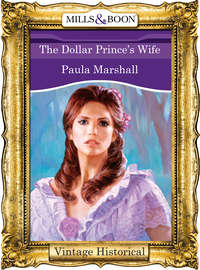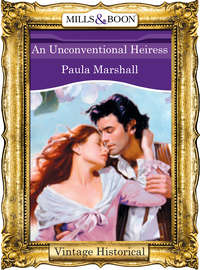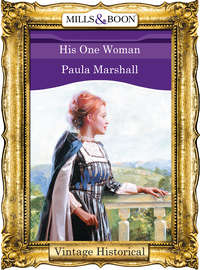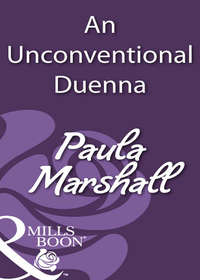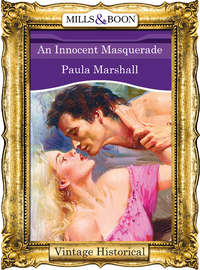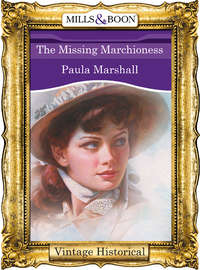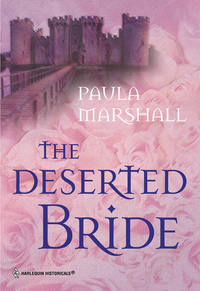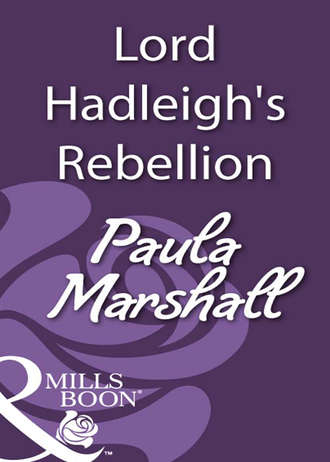
Полная версия
Lord Hadleigh's Rebellion
Later he was to tell himself that power, and the sense of power, is an aphrodisiac, and if excelling at playing games with numbers made him feel powerful, then it was neither strange nor unnatural, but only to be expected, that he should become roused. When, added to all that, the woman who was with him was, in her quiet way, as beautiful as she was clever, it was no wonder that his breathing had begun to shorten dramatically.
He was a boy again and the world was opening up before him as it had done then.
‘You have just said that you were favourably impressed by what I have already done—how much more, then, could we not do if we worked together? Before we do, however, I think that we ought to play one another at chess. I have to confess that it is many years since I last engaged in a game.’
The sad truth was that after Mary had left him the mere sight of a chess board had been enough to distress him. They had played so many happy games together, encouraged by her father who thought that the brain was excited by it: that it acted as a form of inspiration.
What to say? He looked so eager, so pathetically eager, and if the truth were told she was remembering that the game which had once been such a source of pleasure to her had become just another chore, an intellectual puzzle to be solved. To sit opposite to him again would be like revisiting her lost girlhood. On the other hand, if she allowed him to tempt her into giving way on this, was she simply paving the way for yet another piece of treachery on his part?
Why she agreed to play against him Mary never knew.
‘Very well, but it will only be one game, I am not promising anything more than that.’
It was a surrender, though, and they both knew that it was.
‘Allow me to record the state of the current game first,’ she said and, taking his answer for granted, rapidly wrote it down before rearranging the pieces.
‘You may have white,’ he said, once the pieces were rearranged.
‘Indeed, not,’ said Mary haughtily. ‘I want no favours from you.’
Russell laughed. ‘How that takes me back. I remember that you never did. Shall we let chance settle the matter?’ He took a coin from his pocket and saying ‘Heads or tails? I say heads,’ he prepared to toss it up.
‘No,’ said Mary, laughing across at him as she had done so long ago. ‘Allow me to inspect the coin first. I seem to remember that you had two and one of them possessed two heads and the other two tails. You played that trick on me once, but never again.’
‘Oh, ye of little faith,’ Russell grinned back at her and threw the coin to her. ‘It is a good one and you may do the tossing. Am I right to trust you?’
Oh, yes, it was just like the old days when laughter and banter had filled their time together after the hard work of study was over.
Mary said reprovingly, ‘You know that I never cheated you. There,’ and she tossed the coin up, caught it on the palm of one hand and covered it with the palm of her other.
The smile she gave him when she exclaimed, ‘Now, Lord Hadleigh, which is it? Heads or tails?’ nearly destroyed him.
‘Tails,’ he finally achieved.
‘Tails it is,’ she announced, lifting her hand. ‘Why is it that you always win, even when you are not cheating me?’
He could not prevent himself from saying, now suddenly sober, ‘Now Mary, you know as well as I do, that I did not always win.’
Either she did not take his meaning—that she had ended their affair and married another—or she preferred not to. She swung the board around to give him the white pieces and said quite simply, ‘Let the battle begin.’
That, too, was said in memory of the old days and with the same calm amusement which she had used then. It was for her beautiful quiet that he had always loved her. He had been a noisy boy—unlike Ritchie—and he was fascinated by her calm self-control and wished that he possessed it.
Time and the passing years had sobered him, and he was not sure that it had been for the better. Meeting Mary again, though, had revived some of his old exuberance, his zest for life, the sense that anything was possible for him if only he put his mind to it.
‘Prepare to be dealt with as the Romans dealt with Hannibal,’ he announced grandly, ‘particularly as you have no elephants.’
‘But I have knights instead,’ and she moved the Black one—to which Russell countered with his White—and battle was fairly joined.
The afternoon flew by. Early on someone—who?—looked in on them and retreated at the sight of their rapt faces, at the fair head and the dark bent over the board.
Once Russell raised his head to stare into Mary’s eyes. ‘You are bamming me,’ he said accusingly as she moved a minor pawn. ‘What the devil—if I may be so frank—did you do that for?’
‘Since you read my notes you should know exactly why—and the devil had little to do with it.’
Oh, but he had, thought Russell a few moves later. He desperately wanted to win this game. To prove what? That he might have lost to her years ago, but he could not lose now—although it seemed likely that he was just about to do exactly that.
And then he saw a way out of his dilemma when he was on the point of being mated. Mated! There was a double meaning there, was there not? Mate in chess meant death—but in life it meant the possibility of birth. Which one was this? And if he were not to win, for he could not, might he not force a draw and in the doing hold both death and life in balance: the perfect equilibrium! He moved his White knight for the last time.
‘Stalemate!’ he announced triumphantly.
And so it was.
Neither of them had won—or lost.
The perfect ending.
Mary did not think so. ‘That was not supposed to happen,’ she exclaimed, indignant for once. ‘I must have made an error in my calculations.’
‘Ah,’ said Russell, laughter on his face. ‘But then you were playing yourself, not me. I think the ending is perfect, for neither of us have lost face.’
‘Or both of us have,’ countered Mary, beginning to smile herself. ‘I wonder what Father would have said.’
‘That we are well matched, but then, we always were.’
Mary’s smile disappeared. ‘I think that we ought to stop now,’ she said. ‘The others will be returning at any moment.’
‘But you will give me a game again tomorrow, will you not? And allow me to assist you with your calculations?’
His face when he said this was as earnest and serious as he could make it. To be with her again was all and more than he might have expected. It was not simply that she stirred him as no other woman had, but their meeting of minds was something that he had never experienced with anyone other than Ritchie when they had been boys together.
She could not refuse him. Forgetting everything which had earlier passed between them, she remembered only the exhilaration of the last two hours—and gave him the reply which he so dearly wanted.
‘If you promise to behave yourself and not pester me about the past, then yes, we may do as you wish, only providing that you are reasonably discreet.’
‘Bravo!’ was his response to that. ‘As we have already noted, the men of the party are preparing to journey to the boxing mill so we might as well agree to meet here at two of the clock. I see that there is a chess set and board on one of the cupboards which looks as though no one has used it for years. I propose to take it to my room and engage in a little useful practice. You will not find me such an easy mark tomorrow, I hope.’
‘That remains to be seen,’ returned Mary saucily. ‘For the present then, adieu. I shall expect you here on the hour tomorrow,’ and she left him to pick up the spare chessmen and the board, wondering what kind of a fool she was to put him in a position where he could let her down all over again.
Eliza Truman was waiting for her in their suite. She said nothing at first, but after Mary had rung for the tea-board to be brought up to them, she remarked, her voice as neutral as she could make it, ‘By chance I visited the library and saw you there with Lord Hadleigh, playing chess. It is not for me to advise you—you are, after all a widow, no longer in the first stare of your youth—but are you wise to allow him to cultivate you? His reputation is that of a man who has no wish to settle down.’
‘In that,’ returned Mary, ‘he is like many others.’
‘Indeed, but those others are not pursuing you.’
Mary sat down and stared at her companion. ‘What makes you believe that he is pursuing me?’
‘The way he looks for you—and after you. And you are surely not pursuing him.’
Mary’s answer was not as totally honest a one as those she usually made. ‘I am not sure what his motives are for seeking me out. Other than that in our long-ago acquaintanceship we frequently played chess together and, since he was at a loose end, as I was, we agreed to play a game. That is all.’
But enough, perhaps, was a comment which Miss Truman was wise enough not to make. Instead she asked, a little pointedly, perhaps, ‘May I enquire who won this suddenly decided-upon match?’
‘No one. It was a draw. Ah, splendid, here comes the tea-board, now we may refresh ourselves,’ which, Mary thought, was as good a way as any other to put an end to that line of conversation.
Before dinner, Perry Markham, in high spirits after the hanging, was entertaining a few of his cronies in his room. It was quite a merry affair since port and wine were circulating freely. ‘Can’t wait until after dinner to down a few glasses, can we?’ being part of Perry’s cheerful invitation to his small court. ‘Hanging’s thirsty work. Astonishing how many of the plebs were drunk before it began, wasn’t it? It’s a wonder they were wide awake enough to enjoy themselves when the fun started.’
The Hon. Tom, who had been quietly sick in the middle of the so-called fun, had blamed his own malaise at the hanging on too much ale in order to keep up his reputation for being part of Perry’s hard-living set. In consequence he had felt compelled to refuse to drink in the evening. He sat in a large armchair looking woebegone.
‘Not too set down to miss picking a few pockets, though,’ he said mournfully. ‘I lost my purse and my handkerchief.’
‘Oh, come on, Tom, do cheer up,’ roared Perry. ‘I’ve a fine piece of news, hot from my man Dawson, to pass on to you all. It seems that m’lord of Hadleigh, who was too fine and delicate-minded a gentleman to come to Loughborough with us, spent the afternoon with Mrs Wardour playing chess—in the library of all places. Didn’t know anyone used it these days.’
This, as he intended, drew a great deal of appreciative and already tipsy laughter.
‘Thought she was invited here for you, not him,’ said one would-be know-all, ‘and that Angelica was his target. Not like you, Perry, to let another put his oar in before you.’
‘Game’s not over yet,’ spluttered Perry, ‘and it’s not chess I’m talking about. As for Angelica, she’s more interested in Tom, isn’t she? But there’s no hope for you there, old chap—the General wants a richer prize than your good self, more’s the pity. I’d prefer you as a brother-in-law rather than that high-minded ass, Hadleigh, who looks down his nose at me every time we meet.’
The ringing of the first bell for dinner, informing the guests that they were to meet in the drawing room, ended this Parliament of Fools. There was a rush for the door as a result of which the Hon. Tom was last out, still nursing his grievances against life and hoping that the sight and sound of Angelica would cheer him up.
He was lucky. Angelica was standing before the hearth, admiring herself in the huge mirror which stood above it, while ostensibly chit-chatting with Mary. She saw the Honourable Thomas reflected in it when he came through the door. Ignoring all the conventions relating to politeness and good manners, she broke off her conversation with Mary in mid-sentence, turned and almost ran to him.
‘So there you are, at last. I thought that the hanging was over before noon. We all expected your party back in the mid-afternoon, but no such thing. It has been a most boring day. I have seen enough gardens and follies to last me for the rest of my life!’
‘Come to that, my dear girl, I never want to witness another hanging, but we won’t tell your brother so, will we?’
‘Mrs Wardour must have had a dull day, too. Or at least a dull afternoon. I gather, that of all things, she spent it playing chess against Lord Hadleigh.’
The Hon. Tom was left to reflect how rapidly gossip ran round a country house. He wondered uneasily whether his pursuit of Angelica had been watched closely enough for the news to reach her father. It wouldn’t do for him to open a real campaign for her hand until Lord Hadleigh had left without making an offer for it.
Конец ознакомительного фрагмента.
Текст предоставлен ООО «ЛитРес».
Прочитайте эту книгу целиком, купив полную легальную версию на ЛитРес.
Безопасно оплатить книгу можно банковской картой Visa, MasterCard, Maestro, со счета мобильного телефона, с платежного терминала, в салоне МТС или Связной, через PayPal, WebMoney, Яндекс.Деньги, QIWI Кошелек, бонусными картами или другим удобным Вам способом.


